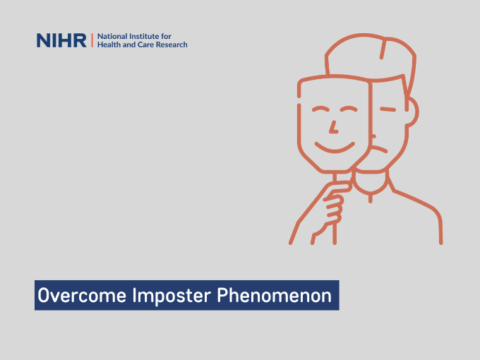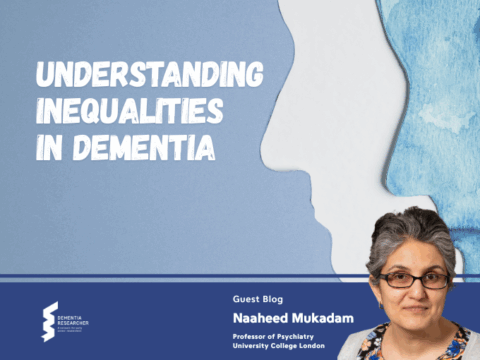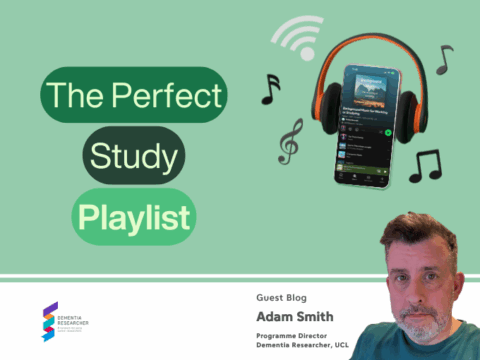Hi everyone, I thought that now might be a good time to discuss one of the major issues I have faced in starting my Master’s Degree – imposter syndrome. Imposter Syndrome is often associated with feelings of self-doubt and lack of belief in one’s abilities. It was first described in the 70’s and often occurs when someone feels they do not have the necessary skills or attributes needed for, in most cases, a particular job or degree (APA, 2020). It seems that Imposter Syndrome is popular amongst Graduate Students and I know from personal experience and speaking to friends that it is probably more common than people think.
I have struggled with this issue since receiving an offer to study at UCL. UCL is often thought to be one of the world’s top universities in Neuroscience teaching and research and I knew that the application process was competitive. Queen Square is a world leading centre of neuroscience and neurology research and knowing that I would be learning from some of the best researchers in the field at such a historic institution, I felt that I wasn’t deserving of the place I was offered. Even after meeting my offer and successfully graduating during a global pandemic, I was terrified that I would not cope with the high standards I expected I would face and I was worried that I would struggle to keep up with my peers.
I was never a straight A student and to be honest, I often considered myself to be an average student at best. I am however a bit of a perfectionist and I therefore struggle if I don’t meet my very high expectations of myself. I think this pressure to do well therefore made me feel like a bit of a fraud when I was applying to postgraduate degrees. While my undergraduate degree no doubt prepared me for studying at Masters level, I was always concerned that I would drown under the workload and that I would need more support than was on offer. I was terrified that my knowledge of statistics wasn’t up to scratch and thought I would struggle to keep up with the clinical terminology amongst various other concerns. These concerns weren’t necessary as the University of Glasgow provides their Undergraduate Psychology students with exceptional experience in statistics and clinical terminology is much easier to get to grips with than I first thought, but nevertheless the concerns were understandable.
Being a first generation student and starting university at a relatively young age, I had no idea what to expect from my undergraduate degree or postgraduate education and the unknown was unnerving. I also find research a very daunting career path as it is so competitive and although it is rewarding, can at times be draining and disheartening. I was often concerned that if I wasn’t working hard and staying productive at all times I would fall behind and lessen my chances of a successful career in research. I think that this fear and the feeling of anxiety that comes with imposter syndrome is something people tend to avoid talking about.
 For a long time, I didn’t talk about the feelings I was experiencing. I didn’t want others to know that I didn’t believe I was deserving of my success so far. I truly believed it was down to luck but didn’t want this to be obvious to other people. As it turns out, lots of other people feel this way and it is nothing to be ashamed of. Having spoken to many of my peers throughout my undergraduate and now postgraduate degree, a lot of us seemed to experience similar feelings. University can be a very competitive environment and this pressure to compete and do well leads to many students feeling inadequate. I found it hard to watch my peers achieving good grades if I had been disappointed by mine and although I tend to watch study tube videos to motivate me while studying, they often left me feeling like I wasn’t achieving much as the standards they set in terms of coping with university and daily life can be so high.
For a long time, I didn’t talk about the feelings I was experiencing. I didn’t want others to know that I didn’t believe I was deserving of my success so far. I truly believed it was down to luck but didn’t want this to be obvious to other people. As it turns out, lots of other people feel this way and it is nothing to be ashamed of. Having spoken to many of my peers throughout my undergraduate and now postgraduate degree, a lot of us seemed to experience similar feelings. University can be a very competitive environment and this pressure to compete and do well leads to many students feeling inadequate. I found it hard to watch my peers achieving good grades if I had been disappointed by mine and although I tend to watch study tube videos to motivate me while studying, they often left me feeling like I wasn’t achieving much as the standards they set in terms of coping with university and daily life can be so high.
Having spoken to fellow students on my Master’s degree, it is clear none of us are really the “perfect student”, and I don’t actually know if that exists or is achievable. It’s an image we all strive for but as a group, we face many of the same struggles. These include coping with the workload in front of us, worrying that we aren’t learning enough content or reading enough extra material, struggling to prepare for our exams and finishing assignments on time while also having to think about where we might want to go and what we want to do after this Masters degree. I know that I don’t always feel capable of handling all of these things but I am learning to be okay with this because so many other people are in the same boat.
I think it is important to know that imposter syndrome is nothing to be ashamed of and that being honest with yourself and others can be a great feeling. I feel so much better when I can share my worries with other people and I often feel that if I have a concern, someone else is likely to be thinking the same thing. I try to give myself more credit for what I have achieved as university isn’t easy and every one of us will probably doubt ourselves at some point.
If you’re struggling with imposter syndrome, feel like a fraud or are battling perfectionism, particularly as a graduate student, please know that you are not alone. Give yourself a high-five every now and then, even for the little things and small achievements. Be kind to yourself and take care of yourself.
As always thanks for tuning in and be sure to catch my blog next month and my upcoming “week in the life of a student in lockdown” vlog later this month,
Morgan.
If you are struggling with Imposter Syndrome, or recognise some of the issues that Morgan discussed in your own life, here are three things that might help:
- Seek feedback from people you trust – Anxiety about being ‘found out’ can lead you to distance yourself from other students and staff. This may reinforce a sense that you don’t belong, and can mean that the self-critical thoughts you might be hiding are not questioned. Remember that the way that you see yourself will not always reflect how others see you. If you let others know about your anxieties where appropriate, they may be able to bring a new perspective, or help you to question the self-critical thoughts that you have. You may even discover that they have or have had the same kind of feelings themselves.
- Don’t be afraid to make mistakes – You may worry that if you are seen to make a mistake, or not to know something, this will be proof to those around you that you are an ‘imposter’. Surely if you were a ‘proper’ student you’d always know the ‘proper’ thing to say and do, right? In fact we all get things wrong sometimes, and we can’t know everything. The fear of getting things wrong can lead you to silence yourself, stopping you from communicating the valuable ideas that you have. Sometimes the only way to give yourself a voice in a group is to risk the possibility of making a mistake. You may be surprised to find that others receive your idea very differently to how you expected.
- Be yourself – A common response to ‘imposter’ feelings is to try to conform to how you think other people expect you to be. For example you might feel that in order to be a ‘proper’ student, or in order to get the approval of peers or staff, you have to look a certain way, dress a certain way, hold a certain viewpoint, or talk or write a certain way. It can be helpful to question the assumptions that you are making about what others expect, and to give yourself more room to express yourself in a way that feels more true to yourself. Trying to give others what you think they want can reinforce the feeling that you are ‘pretending’. Instead you have something unique that you can contribute that comes out of your own thinking and life experience.
Author

Morgan Daniel
Morgan Daniel is an MSc Student at University College London, studying the along the ‘Dementia: Causes, Treatments and Research (Neuroscience)’ track, Originally from Loch Lomond, Morgan completed her BSc in Psychology and Neuroscience at the University of Glasgow in 2019, and she hates all forms of potato! Morgan is sharing her MSc journey during 2020 / 2021 with NIHR Dementia Researcher.
Over the next 12 months, NIHR Dementia Researcher is following Morgan Daniel as she studies for her Dementia MSc at University College London. Morgan will be blogging, podcasting and occasionally taking over our twitter feed to share news from her studies and life, documenting the hi’s and lows’, with tips for others who are considering post-graduate studies.

 Print This Post
Print This Post




